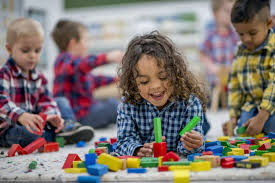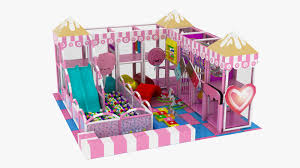
Unlocking the Power of Kids’ Play: Building Brighter Futures Through Playtime
The Importance of Kids’ Play in Child Development
Play is not just a way for children to have fun; it is a crucial part of their development. Through play, children learn about the world around them, develop social skills, and enhance their cognitive abilities.
One of the key benefits of play is that it allows children to use their imagination and creativity. Whether they are building a fort out of blankets or pretending to be pirates on a make-believe ship, play encourages children to think outside the box and explore new ideas.
Play also helps children develop important social skills. When playing with others, children learn how to take turns, share, and communicate effectively. These interactions teach them valuable lessons about cooperation and empathy that will benefit them throughout their lives.
Furthermore, play has been shown to enhance cognitive development in children. Whether they are solving puzzles, building with blocks, or engaging in imaginative play, children are constantly using their brains in new and challenging ways. This helps improve their problem-solving skills, memory retention, and overall cognitive function.
It is essential for parents and caregivers to encourage and facilitate play in children’s lives. Providing them with ample opportunities for unstructured playtime allows them to explore their interests and develop important skills at their own pace.
In today’s fast-paced world, it can be easy to overlook the importance of play in child development. However, by recognising the value of play and making time for it in children’s daily routines, we can help them grow into well-rounded individuals who are confident, creative, and socially adept.
Top 5 Tips for Fostering Healthy and Creative Play in Children
- Encourage imaginative play to stimulate creativity
- Provide a variety of toys to promote different types of play
- Allow outdoor play for physical exercise and fresh air
- Set up playdates for social interaction with other children
- Establish clear boundaries for safe and respectful play
Encourage imaginative play to stimulate creativity
Encouraging imaginative play is a wonderful way to stimulate creativity in children. By providing them with opportunities to explore different roles, scenarios, and worlds through play, we help them develop their creative thinking skills and expand their imaginations. Whether it’s pretending to be a superhero saving the day or creating a magical kingdom in a cardboard box, imaginative play allows children to think outside the box and come up with innovative ideas. This not only enhances their creativity but also fosters problem-solving abilities and boosts self-confidence as they express themselves in new and exciting ways.
Provide a variety of toys to promote different types of play
To promote diverse and enriching play experiences for children, it is essential to offer a wide range of toys that cater to various types of play. By providing a variety of toys, including building blocks for creative construction, puzzles for problem-solving, role-play items for imaginative scenarios, and outdoor equipment for physical activity, children can engage in different forms of play that stimulate their cognitive, social, and physical development. This approach not only encourages children to explore their interests but also fosters a well-rounded skill set as they navigate through different play experiences.
Allow outdoor play for physical exercise and fresh air
Allowing children to engage in outdoor play is essential for their physical health and overall well-being. Outdoor play provides children with the opportunity to move their bodies, develop gross motor skills, and stay active. The fresh air and natural surroundings also offer a refreshing change of environment that can help boost mood and energy levels. Encouraging outdoor play not only promotes physical exercise but also allows children to connect with nature, stimulate their senses, and foster a sense of exploration and curiosity. So, make sure to include outdoor playtime in your child’s daily routine for a healthy dose of exercise and fresh air!
Set up playdates for social interaction with other children
Setting up playdates for your child is a fantastic way to promote social interaction with other children. By arranging these gatherings, you provide your child with the opportunity to develop crucial social skills such as sharing, communication, and cooperation in a fun and engaging environment. Playdates also help children build friendships, learn how to navigate social situations, and gain confidence in interacting with their peers. Encouraging regular playdates can have a positive impact on your child’s social development and overall well-being.
Establish clear boundaries for safe and respectful play
Establishing clear boundaries for safe and respectful play is essential in creating a positive play environment for children. By setting guidelines and expectations, children learn to respect each other’s space, feelings, and belongings. Clear boundaries also help ensure that play remains safe and enjoyable for everyone involved. Encouraging open communication about rules and boundaries fosters a sense of responsibility and empathy in children, teaching them valuable lessons about cooperation and mutual respect.



